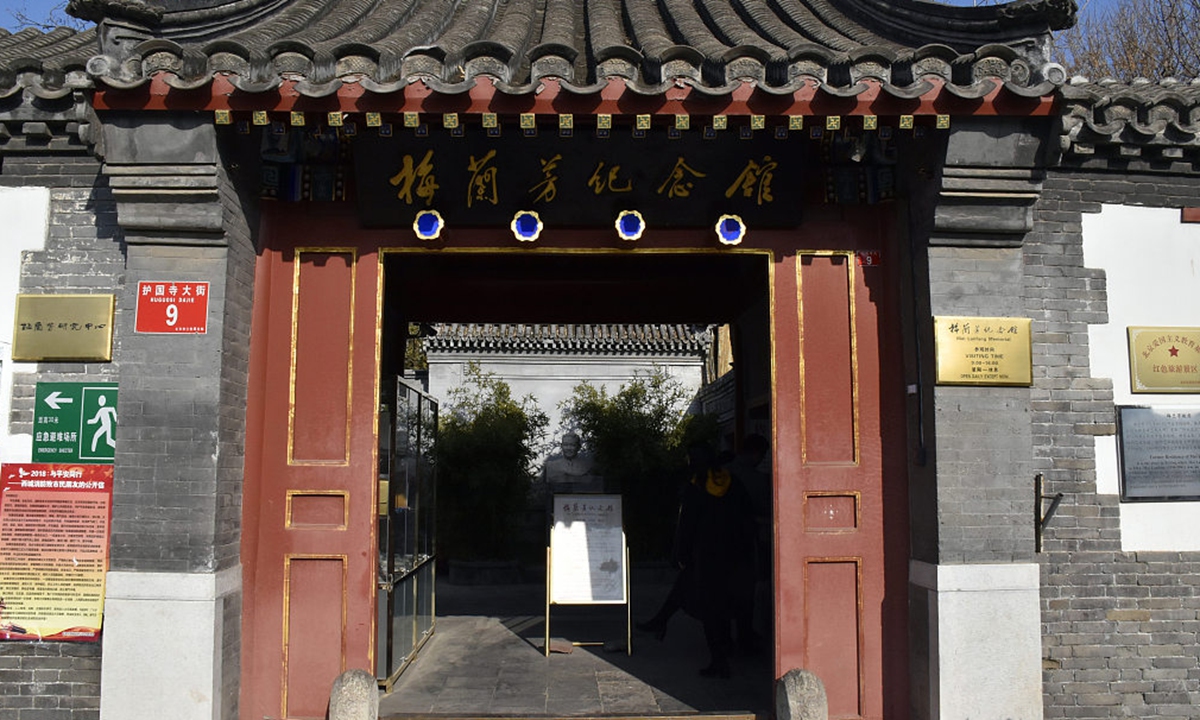
Mei Lanfang Memorial Museum file photo:VCG
More than 200 items related to the world-renowned Peking Opera
Farewell My Concubine are being showcased in Beijing to commemorate the 100th anniversary of the classic opera,the 100th birthday of the Communist Party of China and to the Peking Opera master Mei Lanfang.
The special exhibition at the Mei Lanfang Memorial Museum kicked off with an opening ceremony on Saturday. It displays costumes, a prop sword used by the character Yu Ji during the famous double sword dance in the opera’s last scene, original scripts that had undergone several revisions, and other precious objects that provide insight into the making of the opera classic.
The opera, also known as
Hegemon-King of Western Chu, was created in 1921 by Mei, who played the main role of Yu Ji, and Yang Xiaolou, a performer known for his
wusheng (military hero) roles in Peking Opera. It tells a love story between Xiang Yu(232BC-202BC), a warlordafter the end of the Qin Dynasty, and his concubine Yu Ji, who committees suicide withXiang Yu’s sword after he loses a battle.
Mei, founder of the Mei School of Peking Opera, is still seen today as a “Chinese culture messenger” who successfully introduced Peking Opera to the West during his tour performance in the US in the 1930s.
Mei Lanfang, a
nandan performer, a male actor who plays female roles, devoted all his life to the development of Peking Opera.
Mei has been praised by the media as the Eastern “Charlie Chaplin” who attracted fans in both the East and the West, and “the first Chinese known by Hollywood.”
“Mei Lanfang was a 20th-century Peking Opera great,” Liu Zhen, curator of the Mei Lanfang Memorial Museum, said during the opening ceremony.
“His contribution to arts has set a high standard for traditional Chinese culture.”
“Mei Lanfang is not only a famous artist but also a respectable Communist. As a world-renowned figure, he was always strict with himself,” said Shan Wei, a vice curator at the National Museum of China.
The museum is housed in Mei’s former residence in Beijing, where Mei spent the last 10 years of his life before he died in 1961 at the age of 66.
The exhibition will run until August 30.




